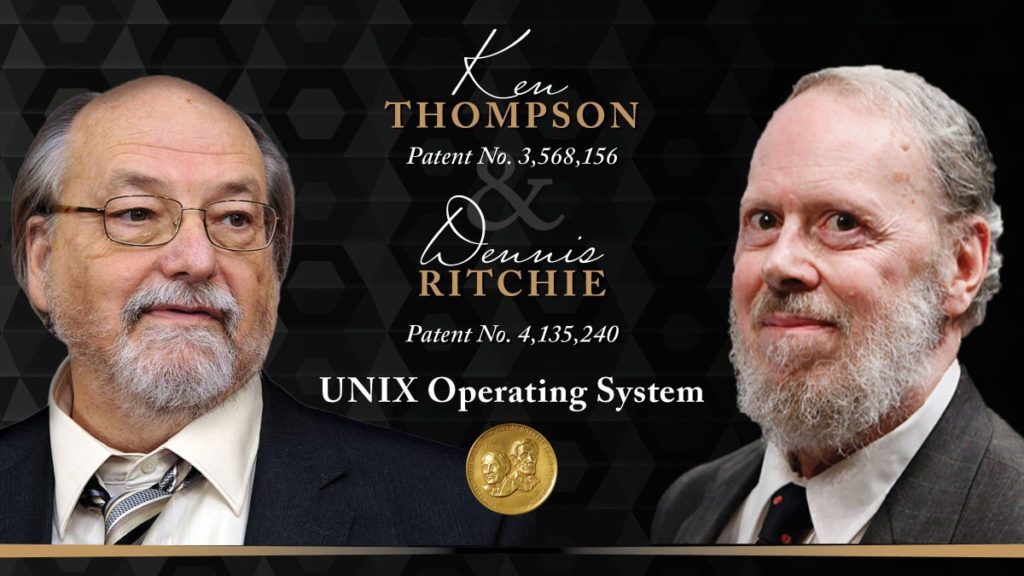The Thompson and Ritchie Story

Bell Labs colleagues Ken Thompson and Dennis Ritchie developed UNIX, a multi-tasking, multi-user operating system alternative to the batch processing systems that dominated the computer industry. Learn more about Thompson: https://www.invent.org/inductees/ken-… and Ritchie: https://www.invent.org/inductees/denn…
Dennis Ricthie’s Life
Dennis MacAlistair Ritchie was born on September 9, 1941, in Bronxville, New York. He grew up with a keen interest in science and mathematics, which led him to pursue a degree in Physics from Harvard University. After obtaining his bachelor’s degree, Ritchie continued his academic journey at Harvard, earning a Ph.D. in applied mathematics. His passion for computing was evident early on, and it was this passion that led him to join the renowned Bell Labs in 1967, a decision that would mark the beginning of a transformative era in computer science.
At Bell Labs, Ritchie’s most notable achievement was creating the C programming language. Developed in the early 1970s, C was designed to be a low-level language that could be used to write both system and application software. Its simplicity, efficiency, and flexibility made it an instant success. Alongside Ken Thompson, Ritchie also co-developed the UNIX operating system. UNIX was revolutionary in its approach, introducing concepts like hierarchical file systems, shell scripting, and multi-user capabilities. Ritchie received numerous accolades for his groundbreaking work, including the prestigious Turing Award in 1983.
Dennis Ritchie’s contributions have had a profound and lasting impact on the software industry. The C programming language became the foundation for many subsequent languages, such as C++, C#, and Java, influencing how software is written, and systems are designed. With its open-source philosophy, UNIX paved the way for many operating systems, including Linux and macOS. Furthermore, the principles and philosophies Ritchie introduced, especially those related to UNIX, have shaped the ethos of the open-source movement, promoting collaboration and shared knowledge. His legacy is evident in almost every piece of modern software and system, making him one of the most influential figures in the history of computing.
Ken Thompson’s Life
Kenneth Lane Thompson, known as Ken Thompson, was born on February 4, 1943, in New Orleans, Louisiana. From a young age, Thompson was strongly inclined toward mathematics and computing. He pursued his academic interests at the University of California, Berkeley, earning a Bachelor’s in Electrical Engineering and Computer Science. After graduation, Thompson joined the esteemed Bell Labs, where he would collaborate with some of the brightest minds in computer science and embark on projects that would forever change the landscape of the tech industry.
At Bell Labs, Thompson’s ingenuity shone brightly. He was instrumental in developing the UNIX operating system, collaborating closely with Dennis Ritchie. UNIX was groundbreaking, introducing many innovative concepts, now standard operating procedures. Thompson also co-created the B programming language, which would later evolve into Ritchie’s C language. Beyond UNIX and B, Thompson contributed significantly to computer science by working on regular expressions and early computer chess programs. He also played a pivotal role in creating the Go programming language at Google, showcasing his enduring influence on the field.
Ken Thompson’s contributions have left an indelible mark on the software industry. The UNIX operating system, with its modular design and emphasis on simplicity, has influenced a myriad of subsequent systems, from Linux to Android. Thompson’s work on programming languages, especially B, laid the groundwork for the development of C, which in turn has been foundational for many modern programming languages. His software design principles, emphasizing clarity and efficiency, have become guiding tenets for generations of software developers. Today, Thompson’s legacy is omnipresent, whether it’s in operating systems’ core design philosophies, programming language structure, or the ethos of open-source collaboration.